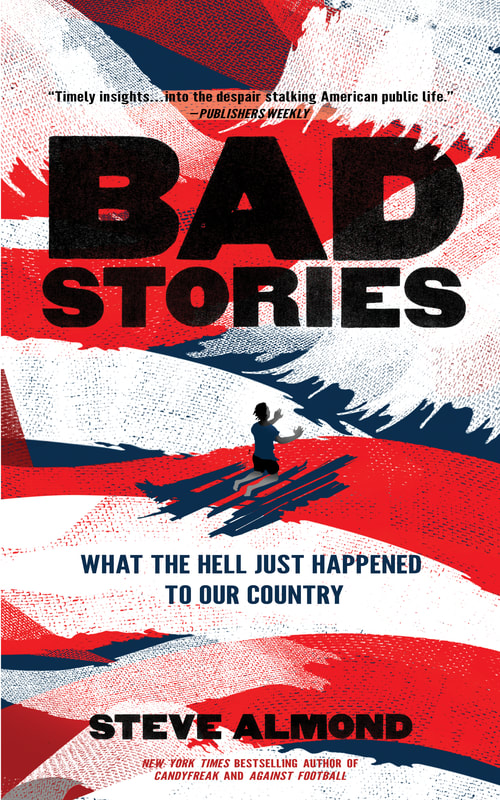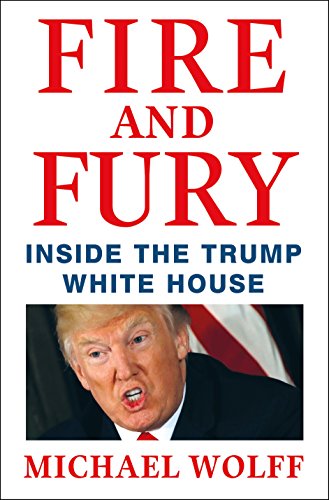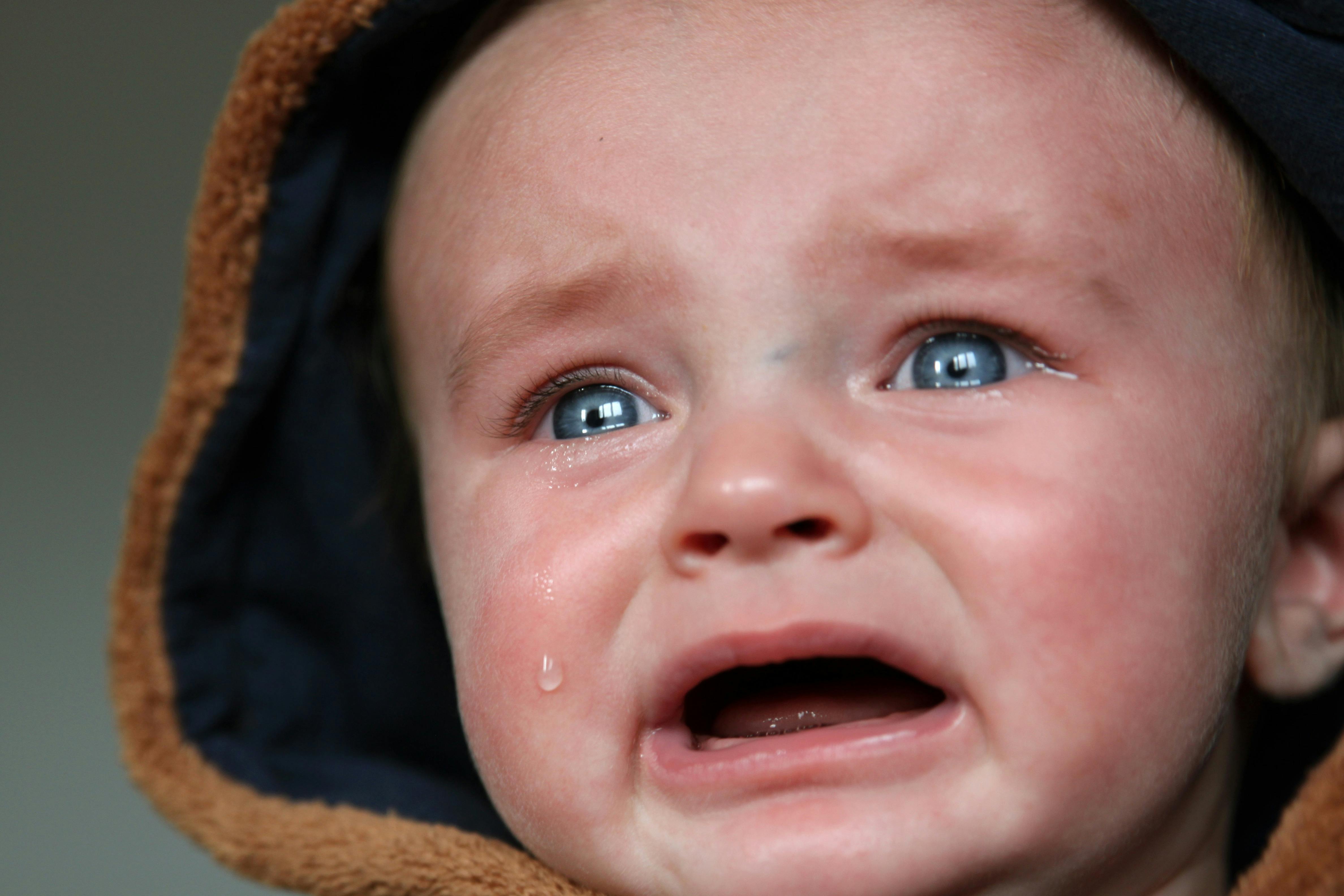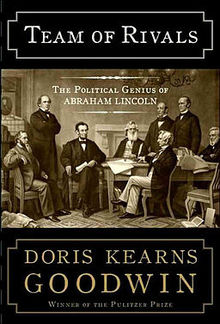Whitewashing, denial, gaslighting, saying black is white, Mad Hatter's Tea Party, 1984 doublespeak—all descriptors of our present condition with a President of the United States who seems to decide what's true with the casualness of a four-year-old playing an "invent-as-you-go" game. But although current events seem extreme, they are not without precedents. After all, we have long denied the facts of America's founding (see What Doris Kearns Goodwin Omitted blog), and we comfort ourselves with all sorts of blatantly untrue Bad Stories (per author Steve Almond).
In her new novel White Houses, Amy Bloom has lovingly exploded the lies of historians about Eleanor Roosevelt and renowned journalist Lorena Hickok, and oh, how exciting it was last night to sit in an audience at The Roosevelt House (where Roosevelt and Hickok first met) and listen to a discussion between Bloom and Blanche Wiesen Cook, historian and author of the Eleanor Roosevelt biography that inspired Bloom's novel. Read More
Notes from a Crusty Seeker
For more frequent--and political--posts, subscribe to my free Substack columns; see "Quicklinks" section at end of righthand column.
White Houses by Amy Bloom: Truth-telling through Fiction
Bad Stories: What the Hell Just Happened to Our Country by Steve Almond Offers Clarity
 This book is staggeringly good. I was familiar with Steve Almond from his short stories, but this is straight journalism at its best (which he teaches at Harvard). (It is clear from Almond's thought processes and messages to students, presented in this volume, that he is a great teacher and seasoned journalist.)
This book is staggeringly good. I was familiar with Steve Almond from his short stories, but this is straight journalism at its best (which he teaches at Harvard). (It is clear from Almond's thought processes and messages to students, presented in this volume, that he is a great teacher and seasoned journalist.)In reviewing, there is a tendency to break down books about politics into bullet-point messages, and I hesitate to do that because it would misrepresent Bad Stories as something much smaller than it is.
So what is it?
Because of Almond's conversational writing style, it is easily readable and offers up documented mind-blowing insights like hors d'oeuvres. Hence, Bad Stories is a huge, readable 237-page revelation of profound insights gleaned from connecting dots that we-the-people largely prefer not to see. Read More
Fire and Fury by Michael Wolff
 The reason more than 80 percent of New York City dwellers voted against Donald Trump was because we knew him—his history of pathological lying, his grandiose credit-taking for things he had nothing to do with, his cheating almost everybody who worked for him, his serial misogyny and complete lack of scruples. Mayor Mike Bloomberg said it straight at the Democratic National Convention: "I'm a New Yorker and I know a con when I see one." For people who liked Trump, his charm had to do with the fact that he was an unapologetic con artist who laughed at his own antics (for an example of the old Trump charm and humor at his own expense, listen to the Howard Stern interview about how he reacted to someone else's trauma). The mistake New Yorkers made was thinking that of course everybody could see the act.
The reason more than 80 percent of New York City dwellers voted against Donald Trump was because we knew him—his history of pathological lying, his grandiose credit-taking for things he had nothing to do with, his cheating almost everybody who worked for him, his serial misogyny and complete lack of scruples. Mayor Mike Bloomberg said it straight at the Democratic National Convention: "I'm a New Yorker and I know a con when I see one." For people who liked Trump, his charm had to do with the fact that he was an unapologetic con artist who laughed at his own antics (for an example of the old Trump charm and humor at his own expense, listen to the Howard Stern interview about how he reacted to someone else's trauma). The mistake New Yorkers made was thinking that of course everybody could see the act. I certainly saw it, but I was also so clobbered by the Recession that I saw the rage, desperation, and racism that was throbbing in our culture, and I was terrified that, with his P.T. Barnum instincts, Trump would trump his own plan (to lose) by having the con succeed. Wolff delineates the shock of the turnaround, obliterating the game plan to "win by losing" and become the most famous person in the world, making more money.
All of it is chronicled in Wolff's free-wheeling book, and really there is nothing new about Trump here. But it is somewhat pleasurable to read confirmation of what we knew and saw, reported by somebody who was a self-described "fly on the wall" of the West Wing and has actual tapes of Trump machine insiders speaking the truth. Read More
What's After #MeToo? Send in the Clowns! Read Paul Beatty's The Sellout
 Timing is important. There is a time for rage and a time for laughter, and right now rage reigns—as it should. After centuries of suppression, critical mass has been reached, the #MeToo movement has exploded, and male bodies are flying. Time magazine has put it on its cover. It's about time!
Timing is important. There is a time for rage and a time for laughter, and right now rage reigns—as it should. After centuries of suppression, critical mass has been reached, the #MeToo movement has exploded, and male bodies are flying. Time magazine has put it on its cover. It's about time!Like any other human woman, I have a litany of stories of men abusing their power. I admire the women who have spoken up. I quickly learned that would not work for me: Although I'm a clown, I couldn't laugh. As a child, I wasn't believed; as an adult, there was nobody to speak up to because the abuser was the boss. My M.O. was to cut and run, resulting in what might be politely referred to as an "attachment disorder" and "an eclectic" work résumé.
But I do believe there is another way, and eventually the clowns will have their microphones.
I recently read a "holy cow"-popping, rib-crackingly funny book that gave me a clue about how that might be.
In Paul Beatty's Man Booker-prize-winning, esoteric-reference-riddled novel The Sellout, an outsider black man "leans in" (thank you, Cheryl S.) to prejudices, actually reestablishing segregated schools and slave trade in his small California town of Dickens. Read More
Sacrifice Is Critical in the Age of #MeToo
 It's not complicated: "No" means no. "No, I don't want to do that." "No, stop that." "No, I don't think that is funny."
It's not complicated: "No" means no. "No, I don't want to do that." "No, stop that." "No, I don't think that is funny."Persistent advances—kissing, groping, or worse—after somebody has made their "No" clear is bullying or assault. End of story.
Good guys can do this. They can get their photos snapped doing it. And rather than defend them as good guys and attack the victims for being "coached" by your opposition, realize they were doing something a woman had clearly rejected.
Talented guys can do this: brilliant actors and directors who have long-dirty reputations in closed industry circles, yet they've gotten away with it and their predation escalates.
Presidents can do this, and they appear to be Teflon-covered. Read More
What Happened by Hillary Clinton
 What really happened? What always happens: Politics, like life, is not fair. Nobody tells the whole truth. Everybody thinks they're right and excoriates everybody who doesn't agree with them. And the best we can do with this mess is try to listen to everybody with an open mind, make the best choices we can—knowing that none of them are perfect, and when we are in peril, choose whatever compromise most assures life.
What really happened? What always happens: Politics, like life, is not fair. Nobody tells the whole truth. Everybody thinks they're right and excoriates everybody who doesn't agree with them. And the best we can do with this mess is try to listen to everybody with an open mind, make the best choices we can—knowing that none of them are perfect, and when we are in peril, choose whatever compromise most assures life.I voted for Bernie Sanders in the presidential primaries, and his book, Our Revolution, was the first I read about the election.
The second related book I read more recently, The Dangerous Case of Donald Trump, and it was like an infusion of sanity.
What Happened by Hillary Clinton feels like the third in a medicinal trilogy. It is healing to read a funny (the specifics of the phone and email stuff are laugh-out-loud funny!), articulate, sane person admit her flaws, take responsibility for most of them, introspectively process what happened, learn, and consider new policies and future actions in a more open way because of it. Read More
The Dangerous Case of Donald Trump by 27 Shrinks
 I've been waiting for this book—the words of highly trained mental health professionals who are brave enough to risk backlash from their own associations by putting the safety of all people ahead of their rules to say nothing about individuals they have not treated. In a meticulously written foreword, one of the authors makes the case that "duty to warn" people whose well-being is in danger trumps the "Goldwater Rule" about silence. (There is an entire section of chapters on the ethics of speaking out—far too much to reduce into a review byte.) We are all in danger from this individual we have installed in the highest office in the land, and I consider the 27 authors of this step-by-step analysis of Trump's severe psychological impairments to be whistle blowers.
I've been waiting for this book—the words of highly trained mental health professionals who are brave enough to risk backlash from their own associations by putting the safety of all people ahead of their rules to say nothing about individuals they have not treated. In a meticulously written foreword, one of the authors makes the case that "duty to warn" people whose well-being is in danger trumps the "Goldwater Rule" about silence. (There is an entire section of chapters on the ethics of speaking out—far too much to reduce into a review byte.) We are all in danger from this individual we have installed in the highest office in the land, and I consider the 27 authors of this step-by-step analysis of Trump's severe psychological impairments to be whistle blowers. But what are the political affiliations of the contributors and are they biased? This is immediately addressed: it doesn't matter. The content is pedagogy not politics: the nature of psychological disorders. They are described in all their variations; they are all recognizable as played out by this president—the proofs are provided; and their dire results are delineated, well researched, and broad. And the final chapter regarding recommended immediate action to assess presidential fitness now and in the future—grounded in Section Four of the Twenty-fifth Amendment issues of "a written declaration that the President is unable to discharge the powers and duties of his office"—are required to be nonpartisan in nature.
Read More
Personality Disorders
Extreme Present Hedonism—impulsiveness of thought and therefore action with no awareness of consequences; propensity to dehumanize others in order to feel superior.
Narcissistic Personality Disorder—superiority, exaggeration of talents, emotional, dramatic, lacking compassion and empathy (inability to recognize other people's feelings), low self-esteem.
Bully Personality—physical, verbal, prejudicial, relational, cyber, sexual.
Possibility of a neurological disorder—based on delineated observations.
We Are Being Manipulated into Oblivion—See the Big Picture
 When the chaos gets to be too much, I find it helpful to pull way out to bird's eye view and look at the big movements. Here is what I've observed:
When the chaos gets to be too much, I find it helpful to pull way out to bird's eye view and look at the big movements. Here is what I've observed: (1) an external force saw chaos and opportunity and skillfully manipulated it for maximum upset.
(2) a leader with the ability to help the external force divide and therefore conquer was installed.
(3) at every opportunity, division is cultivated by exploiting the cultural war that was always bubbling, but far beneath the surface.
(4) the goal is obliteration of the union.
Wildfires are the result of many little movements—fires that burn out of control, eventually immolating the landscape. We are in the midst of those little fires. Arsonists in the form of Putin-directed armies of trolls have set them. How? Through social media with many little divisive memes and messages designed to enrage people—both sides. Right and wrong, true or false are NOT THE ISSUE. The information can be true but stated in a way to blame and therefore divide readers into sides. Or the information can be false, again resulting in a divide. DIVISION IS THE GOAL. Divided we fall. Read More
Team of Rivals—What Doris Kearns Goodwin Omitted
 This is a wonderful nuanced book that resonates mightily with and informs what is going on today. Read it if you want to understand any kind of historical basis for what is now happening in the U.S. Read it if you love the minutia of history—every conversation ever recorded during the Lincoln period, every permutation and convolution of the Civil War, the complex emotional motivations behind the factions (a lot of people fought more for preservation of the union than out of any conviction about slavery)—or if you feel as if you need to learn U.S. history. This book has garnered enormous public attention as well as an award-winning movie based on it, so I am not going to write more commentary on what is in it. Instead, here are some opinions about the very important content that is missing.
This is a wonderful nuanced book that resonates mightily with and informs what is going on today. Read it if you want to understand any kind of historical basis for what is now happening in the U.S. Read it if you love the minutia of history—every conversation ever recorded during the Lincoln period, every permutation and convolution of the Civil War, the complex emotional motivations behind the factions (a lot of people fought more for preservation of the union than out of any conviction about slavery)—or if you feel as if you need to learn U.S. history. This book has garnered enormous public attention as well as an award-winning movie based on it, so I am not going to write more commentary on what is in it. Instead, here are some opinions about the very important content that is missing.At more than 900 pages, the book was so heavy, I broke down and bought a wretched Kindle version so that I could read without straining my tendons. But still, it was too short. Why? Read More
What's Not Dear about Dear Evan Hansen
After I saw actor Ben Platt perform on the Tony Awards, I couldn't buy my ticket to Dear Evan Hansen fast enough. (I should preface all this by saying that I worked in the theater as an actor and playwright for more than a decade, so my awe was informed by knowing how almost impossible some of what he did was.) What I saw in Platt was a combination of musical genius, vocal and acting depth, technique—equal parts spontaneity and control—that delivered a once-in-a-lifetime performance that might end up on my list of spiritual high points in the theater—which has only one other member, Peter Brook's 1970 Broadway production of A Midsummer Night's Dream.
"I want to be guaranteed to see Ben Platt," I told the box office clerk.
"His contract runs out in November," he answered.
"Okay, what's the first ticket where you can guarantee he's in the show?"
Three hundred dollars later, I walked home stunned. But it was once in a lifetime. Read More
The Book of Mormon and Why Can't We All Just Get Along?
During intermission, as I gazed over the packed house from my seat near the front of the orchestra, I couldn't help but hear the loud cell phone conversation of a woman a few rows back: "I just don't find it funny," she said irately. "And I really dislike the actor playing the queer. His mannerisms are annoying, and there's a lot of things they don't get right. It just isn't funny." The conversation was all the more interesting because a few minutes earlier, several people sitting next to me had been complaining about the lack of cell service in the theater. But that aside, I began to wonder about her and her need to pronounce her displeasure. And I've thought about her more in the ensuing days. Read More
Indecent on Broadway and The Postman Always Rings Twice
 Much as we like to fancy ourselves superior to sheep and cows, we really have a lot in common: we are a herd species. We have leaders and followers, and to spook us requires a well-placed surprise that the "influencer" members pick up, and ka-boom, stampede. To control us, merely convince the same influencers, and we follow en masse. It's the key to many things — for instance, politics. But first the entertainment. (To get a point across, I've noticed that good shepherds open with enticement.)
Much as we like to fancy ourselves superior to sheep and cows, we really have a lot in common: we are a herd species. We have leaders and followers, and to spook us requires a well-placed surprise that the "influencer" members pick up, and ka-boom, stampede. To control us, merely convince the same influencers, and we follow en masse. It's the key to many things — for instance, politics. But first the entertainment. (To get a point across, I've noticed that good shepherds open with enticement.)I just saw a matinee of Pulitzer-winner Paula Vogel's play Indecent, a timely story about our herd propensity. In 1907, a young playwright named Sholem Asch wrote a play called God of Vengeance which was frightening to his Jewish colleagues because it exposed Jews as flawed people. "You can't show this," they rail at him. Nevertheless, the play is put on, is a big hit, tours throughout Europe and eventually lands in New York . . . where it is censored for an uptown production. What is cut out is a love scene between two women. Subsequently, it becomes a play about a Jew who runs a whore house, abuses his lesbian daughter, and disrespects the Torah. And the show is shut down and the cast jailed.
The New York herd was spooked — something had to be done, somebody subdued, trampled, shut up.
The reason that I think this play is important — particularly in our time when political correctness has become a divisive topic — is that it movingly expresses the value of (and price paid for) speaking truth, no matter who may get offended by it or who may use it to bolster arguments for bigotry. In my opinion, this is the tightrope negotiated by all artists who are working to express something bigger than they are. If you really say it, somebody is going to be infuriated. Read More
Lincoln in the Bardo, a Bodhisattva Story?
 First some definitions:
First some definitions:In Buddhism, bodisattvas are people who are enlightened but stay with us suffering mortals to help, even absorb our pain, in order to aid us on our individual journeys to enlightenment (oneness with All That Is).
And bardos are an intermediate state of existence between two lives.
It took a day to hit, but when it did, the recognition of Abraham Lincoln in Georges Saunders's wonderful novel Lincoln in the Bardo as a bodhisattva made me feel like laughing and crying at the same time.
What an imaginative, unusual, and nicely bawdy book, but I'm not sure you would be drawn to it if you have no background in Eastern traditions or predilection for, or merely willingness to suspend disbelief about, the notion that life exists beyond what we experience in our bodies or that in more ethereal realms thoughts create reality and that energy can move like great literal ocean waves, causing experiences and communications between the realms. Read More
Don't Think of an Elephant: Know Your Values and Frame the Debate by George Lakoff
 Like many other people, I've been stymied by the fact that facts no longer seem to matter: you can have two photographs of crowds side by side, and someone can call the smaller gathering the larger one with impunity; you can claim to have done more than anybody in history and in fact have done next to nothing; there can exist historical footage quoting you as saying one thing . . . and then the opposite, and you can claim to believe whichever film is more convenient according to the moment. As a friend recently said, "What do you do when it's clearly raining outside and it's now perfectly acceptable to look at it and say, 'It's not raining'?"
Like many other people, I've been stymied by the fact that facts no longer seem to matter: you can have two photographs of crowds side by side, and someone can call the smaller gathering the larger one with impunity; you can claim to have done more than anybody in history and in fact have done next to nothing; there can exist historical footage quoting you as saying one thing . . . and then the opposite, and you can claim to believe whichever film is more convenient according to the moment. As a friend recently said, "What do you do when it's clearly raining outside and it's now perfectly acceptable to look at it and say, 'It's not raining'?"Here's what I've done: I've begun to learn a new language and a neuroscientific explanation of all of the above.
Although it is only 168 pages and subtitled "The essential progressive guide for the issues that define our future . . .," in Don't Think of an Elephant (revised and re-released in 2014 by Chelsea Green Publishing), cognitive scientist George Lakoff has written an opus, not a quick-fix, sound-bite-loaded little guide. Often it suffers from too much detail, but I give it much praise for the sections that explain the brain science of why facts don't matter to many voters and they will vote against their own interests. And the last chapter, "How to Respond to Conservatives," is worth the cost of the book. Read More
A Gentleman in Moscow and Hypocrisy in Historical Accuracy

"At no other time in history," said Amor Towles, author of A Gentleman in Moscow (which I've swooned over) and Rules of Civility (which I will read very soon), "at no other time have fiction writers been held to a higher standard of truth than people who run for political office."
Big laugh! We were a packed audience at a talk Towles was giving at the National Arts Club located on Gramercy Park South, one of the most elegant addresses in New York City and a fitting venue for a writer as elegant as Towles in his perfectly fitted brown pin-stripe suit. He continued: "Someone running for the highest office in the land can say anything, the most outrageous lies, and be excused, yet if I get an address wrong in a novel, I receive a million irate emails."
Another laugh. Read More
